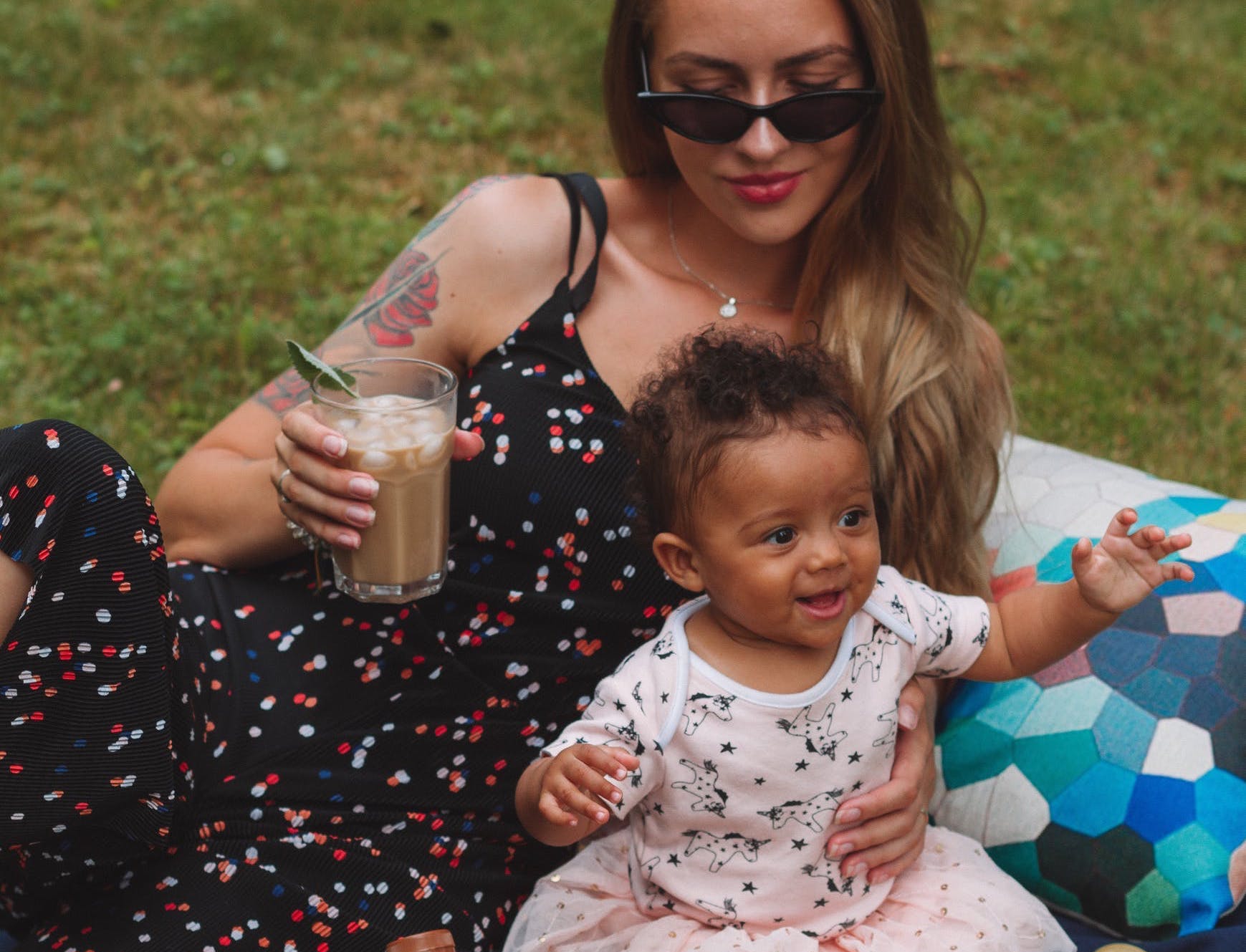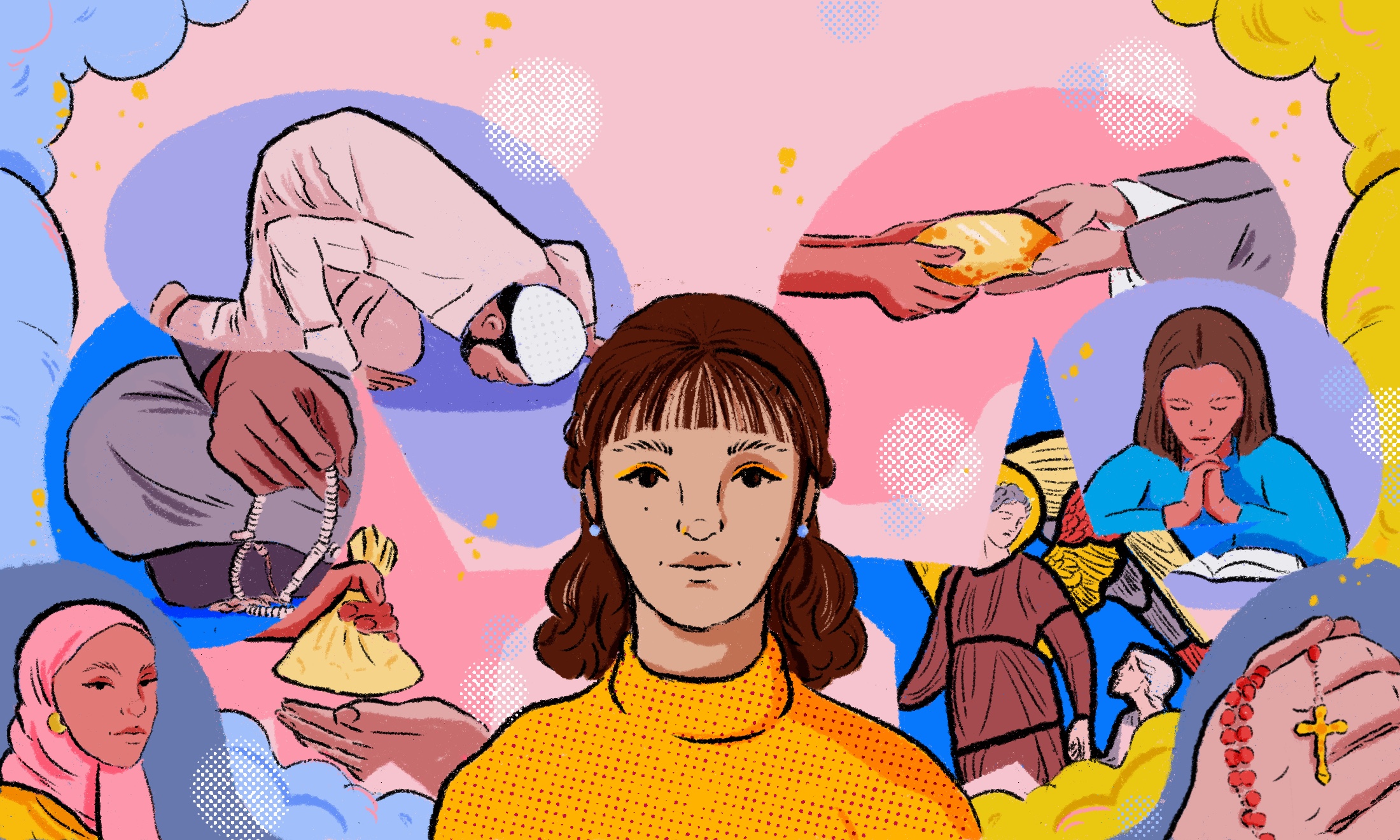
The birth of the new royal is a good time to leave behind your obsession with mixed race babies
Jessica Heron-Langton
06 May 2019
Photography by Humphrey Muleba via Pexels
It’s official: Meghan Markle and Prince Harry have welcomed their first child into the world. A child that has “made history” as the first mixed race baby to be born into the British royal family. I typically avoid stories about the monarchy – but as a mixed race woman who grew up in Windsor, just yards away from the castle, I’ve found myself following the story of Meghan and the new baby with particular interest.
During the summer of the royal wedding, Meghan embodied a change I had longed for. Although I don’t think one mixed race woman can ever fix centuries of colonial wrongdoings, on that hot summer’s day, set against the backdrop of Brexit and Trump, her descent into royal life felt not only like a personal victory, but a national progression.
But my initial hopefulness was quickly followed by anxiety for the scrutiny Meghan would undoubtedly come under as the first mixed race royal. And I wasn’t wrong, throughout her time in the media spotlight, she’s been condemned for things as small as touching her baby bump, eating avocado toast and having nice handwriting. And when Meghan announced her pregnancy, my anxiety was reaffirmed. Since, she’s been on the receiving end of headlines like “Markle has lost her sparkle”, and received criticism for wanting to keep to birth of her child a private affair.
As expected, the UK media have speculated and obsessed over the child itself, but something about the coverage this time round has been racial. On ITV’s Tonight Programme, “experts” spoke of the “extraordinary” ancestry this baby will have, meanwhile on Good Morning Britain, C-list celebrity royal Lady Colin Campbell argued that the baby is “not going to be black. It’s going to have black blood, but it’s also going to have white blood”.
“Journalists have written about Meghan’s ‘rich and exotic DNA'”
As well as her “blood”, Meghan has also been reduced to her features and DNA – positioning her as a racialised object whose only purpose is to bring some spice to the royal bloodline. Rachel Johnson of the Mail on Sunday wrote: “Genetically, [Meghan] is blessed. If there is issue from her alleged union with Prince Harry, the Windsors will thicken their watery, thin blue blood and Spencer pale skin and ginger hair with some rich and exotic DNA.” Afua Hirsch also wrote on Tuesday about her inbox being flooded with requests to perform what she called “racial soothsaying…analysis of child’s hair texture, skin colour, the number and significance of its freckles, and what that will mean for the future of the monarchy”.
Britain’s history with its mixed race community is fickle and deeply racist, and Meghan, by her very being, has unearthed this relationship. Although ideas of race creep into our daily conversations, and racism is sadly embedded into our society and culture, it’s rarely spoken about in the mainstream media. But Meghan and her pregnancy seem to have invited prejudices onto front pages of British newspapers.
“The hashtag #mixedbabies has 1.5 million posts on Instagram”
The fetishisation of mixed race people isn’t new. The hashtag #mixedbabies has 1.5 million posts on Instagram, and there are hundreds of Facebook and Insta pages dedicated to posting pictures of mixed race children. And I heard it myself when I was growing up – at my overwhelmingly white school, girls as young as 14 would talk about how they wanted their future husband to be black, in the hopes they could have a “cute mixed race baby”.
Mixed race fetishisation doesn’t only surround ideas of beauty – it’s also used to prop up political ideology. Since Britain formally committed to the project of “multiculturalism”, mixed people have been weaponised as a symbol of a post-racial society. Writing for Reuters, Jayson Mansaray asked readers last month whether this was “Britain’s Obama moment”. If what is meant by that is a black person making it to the top, without much material change for people of colour on the ground, then perhaps. But to imply that the birth of one baby proves that racism is over is naïve at best.
It wasn’t always this way. Throughout the 20th century, myths about mixed race people framed them as “tragic”, unintelligent, more sickly and even less fertile. The Eugenics Society, whose members included Winston Churchill, HG Wells and Marie Stopes, for example, even tried to promote the “sterilisation” of “half-castes at birth”.
But we shouldn’t see it too surprising that the switch has flipped on how mixed people are seen by society. According to Chamion Caballero, an academic in mixed race history and co-author of Mixed Race Britain in The Twentieth Century, the adoration mixed race people receive today has a similar effect to the condemnation they were subject to throughout the 20th century. “They are the different sides of the same coin,” she says. “We’ve moved from pathology to celebration, but they are both saying the same thing – by being mixed race you are other, you are different, you are not the same.”
“We’ve moved from pathology to celebration, but they are both saying the same thing – by being mixed race you are other, you are different, you are not the same”
So although being called exotic might seem preferable to being framed as genetically inferior, neither is acceptable. Although the fetishisation of mixedness may look positive on the surface, as I have been told many times – “why are you offended?! Mixed race babies are cute, it’s a compliment!” – it highlights a dark obsession our nation has had with mixed race people for decades. Although the tone has changed, the sentiment is still the same.
Although there’s no way to generalise the mixed race experience, I so often relate to other mixed race people despite our circumstances and upbringings being so entirely different. And that is why, despite my dislike for the monarchy and all it stands for, I’ve found myself so emotionally invested in Meghan and the royal baby.
Like many others, my mixed race experience has been shaped by a larger national perceptive of mixed race people. Whether we are seen as tragic or beautiful, as an undesired symptom of racial mixing or the face of a post-racial utopia, it is the way our nation deals with these ideas that impacts how mixed race people live across Britain today.
Our nation’s fetishisation of a child (before it was even born), who will undoubtedly grapple with these same ideas throughout their life, is dangerous. For me, being mixed race and living in Windsor forced me to think about my identity in ways I sometimes didn’t understand. For Meghan and Harry’s child, I expect it will be the same. One thing is clear: if there is a time for society to leave behind its obsession with mixedness, that time is now.









